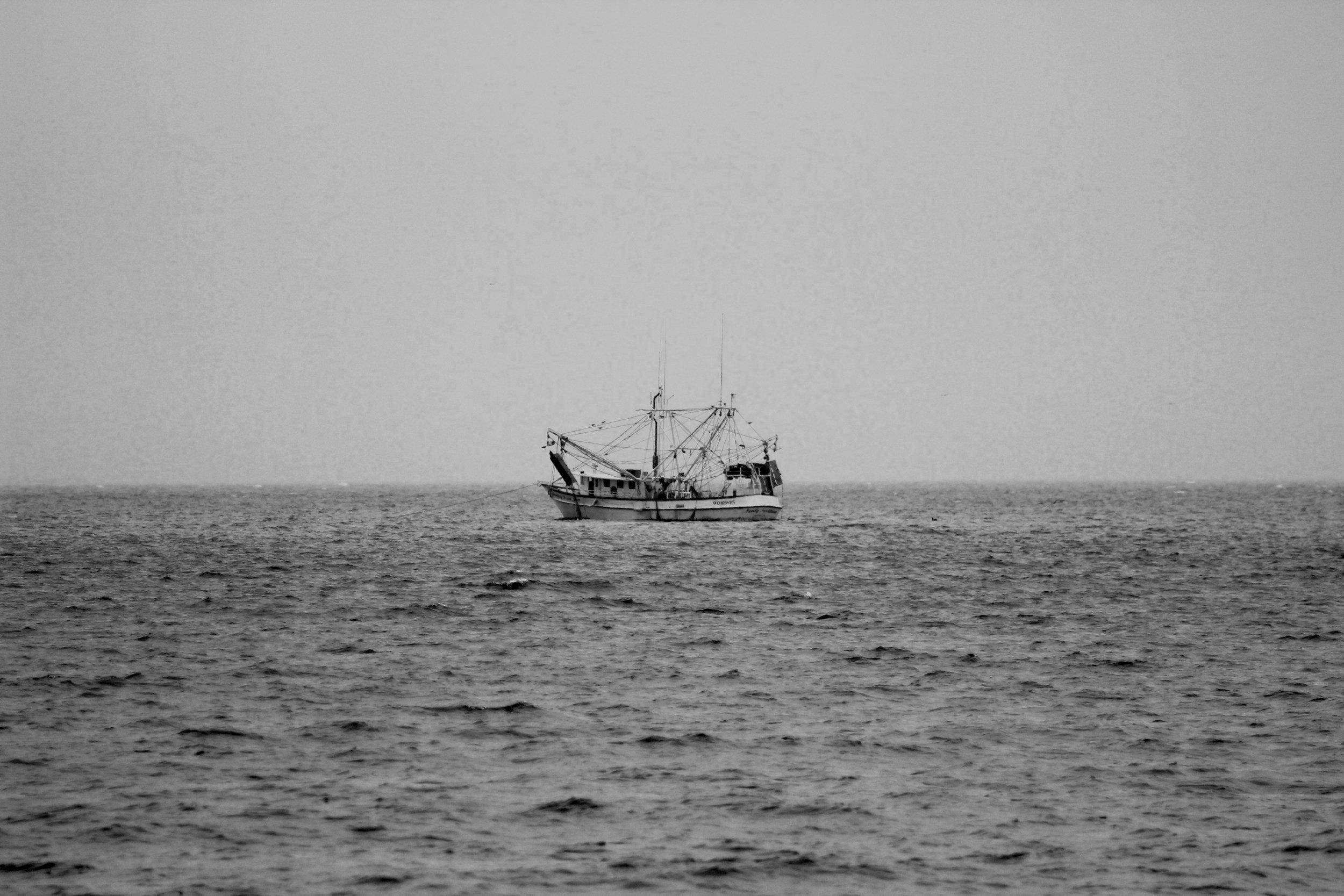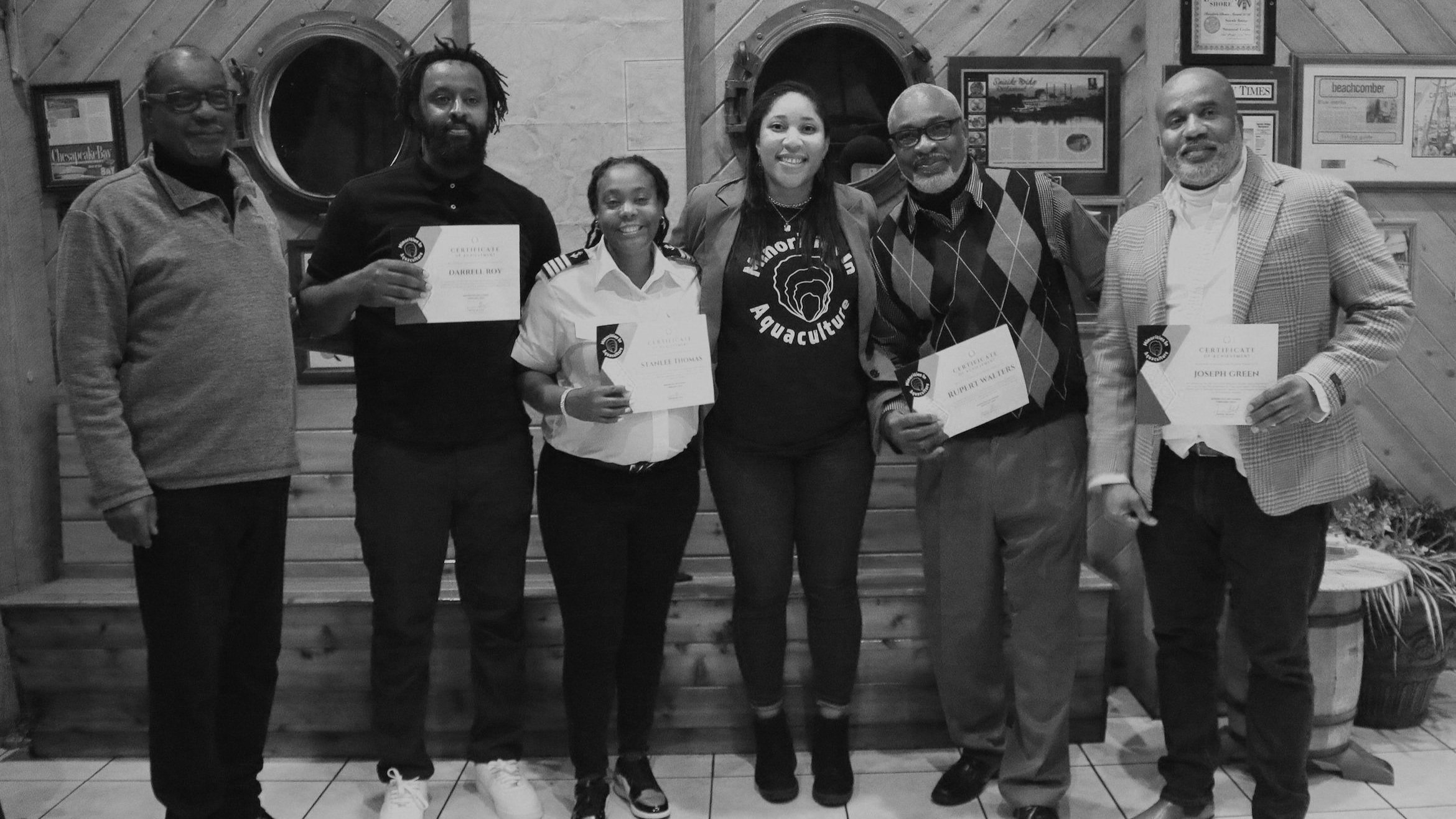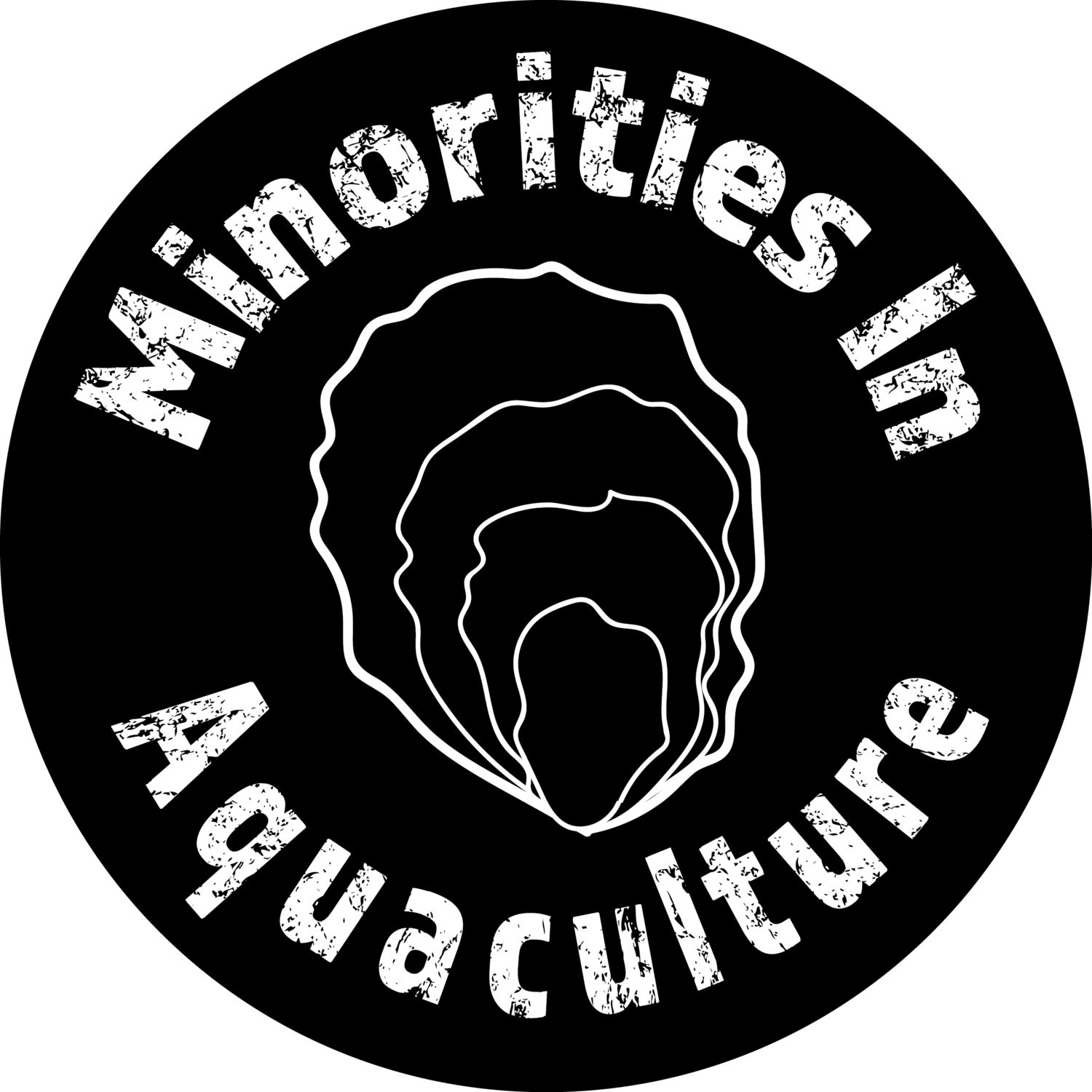
MINORITIES ON COURSE
Offering aspiring captains an opportunity to engage with the last living Black captains on the Chesapeake Bay.
Designed to assist in the completion of the U.S. Coast Guard 100-ton Captain’s License Course.
The Minorities On Course program equips aspiring captains on the Chesapeake Bay with the skills, certifications, and industry connections needed to build successful careers in aquaculture. Through hands-on training and mentorship, experienced captains pass down their traditional ecological knowledge, ensuring the next generation of professionals is prepared to lead. This program strengthens the career pipeline for people of color, creating more opportunities for them to become licensed captains and industry leaders in aquaculture.

our why behind the minorities on course program:
11,244
Licensed Captains currently employed in the United States.
6.7%
Black or African-American ethnicity of Captains in the U.S.
34.6%
Of all U.S. Captains are women, while 65.4% are men.
what minorities on course offers:
IN-PERSON MENTORSHIP
Each course cohort participates in weekly, in-person instruction led by experienced regional captains. Over 12 weeks, participants engage in structured learning, including bi-weekly Saturday sessions focused on charting, plotting, and hands-on navigation exercises.
HANDS-ON TRAINING
MIA equips participants with the knowledge, certifications, and practical skills required to build successful maritime careers. From licensing preparation to real-world training, we ensure each participant is job-ready.
NETWORK EXPANSION
MIA provides participants with essential educational resources, industry connections, and mentorship from past graduates, creating a strong support system for career growth.
Which City Has The Most Captains?
In order to command or supervise operations of ships and water vessels, such as tugboats and ferryboats, it is required to hold a license issued by the U.S. Coast Guard.
The U.S. Bureau of Labor Statistics identify the industries with the highest levels of employment for Captains, Mates, and Pilots of water vessels to include:
Support Activities for Water Transportation
Inland Water Transportation
Deep Sear, Coastal, and Great Lakes Water Transportation
Scenic and Sightseeing Water Transportation
Other Heavy and Civil Engineering Construction
Source: Zippia.com 
WHAT OUR GRADUATES & MENTORS ARE SAYING
What motivated you to pursue a captain's license?
“To continue my fathers and great-grandfather’s legacy.”
— Lloyd Price, 2023 Cohort Participant
“It's important to get the word out more and to have more diversity showing a Captain's license as a career option. It would be most influential to see younger Captains of color to better identify with. People from Baltimore come down (to Kent Island) and don't even think we exist. And I've been doing this for 38 years.”
— Capt. Darrell Roy, Sr. (60 years) - Father of Minorities On Course Recipient
What motivated you to pursue a captain's license?
“Living on the Chesapeake Bay and observing the Watermen I have taken great interest in being on the water. I have also taken noticed of the dwindling population of minorities on the Bay and thought this was the time to further my interest and pursue my passion.”
— Rupert Walters, 2022 Cohort Participant & 100-ton Master Captain
“After I get my license, I’m working with a business investor currently. We’re going to get a loan, start my business, buy a boat, buy all the necessary equipment, rods, nets. And the next step from that would be working on a clientele list.”
— Branden Williams, 2023 Cohort Participant
“I think it's wonderful to have the support in the community. It's a great opportunity and I am looking forward to helping others. The program was a little difficult, not knowing others who have gone through it.”
— Joseph Green, 2022 Cohort Participant & 100-ton Master Captain





